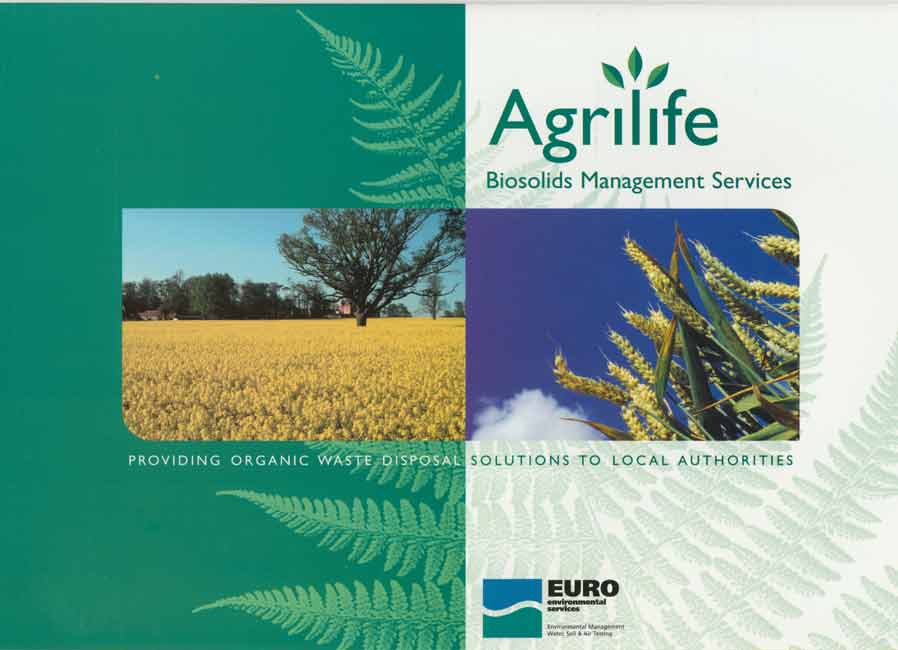 |
Sewage
sludge is a necessary waste resulting from the effective treatment
of waste water. The disposal options for this waste are limited.
Up to 1998 sludge could be disposed of to sea but now most
is sent to landfill.
However,
if properly treated it has a very useful and environmentally
beneficial purpose in being applied to land as fertiliser.
|
Why
should a useful resource be disposed of to landfill? Consistent
with the principles of the Waste Hierarchy, biosolids provide
a high source of nutrient and organic matter suited to agricultural
requirements and, when applied correctly, are beneficial to
the environment.
Agrilife
Ltd. specialise in the environmentally responsible application
of biosolids to land. The company believe that the highest
Environmental Standards are fundamental to the success of
its business.
|
We
have developed our business from the servicing of IPC licensed
companies in the food and drink industries. Currently we
apply 20,000 tonnes of organic waste on a dedicated landbank
of 6,000 acres throughout Ireland. All applications are
carried out in accordance with EPA requirements.
Agrilife
has a long history of working with both farmers and industry
in utilising organic waste products as an alternative to
artificial fertilisers in both tillage and grassland farming.
|
In
conjunction with EURO Environmental Services, we are recycling
organic waste through careful and planned application to land.
|
LIME
STABILISATION
Lime
stabilisation of dewatered sludge is the most effective method
of creating a treated biosolid which is biologically stable.
Treated biosolids have a high nutrient value and are pH favourable
for application to grazing and tillage crops. They are a nutrient
source and lime addition, having a pH of 12+. They also have
an organic/humus addition to the soil which artificial fertilisers
do not have
|
- A
comprehensive examination of all Local Authority sludges.
- Proposals
on the sterilisation and production of biosolid fertiliser.
- Completion
of comprehensive Nutrient Management Plans based on code
of practice etc.
- Maintenance
of biosolids register, and details of all waste applied
to land and in storage, according to regulations and any
other requirements of the Local Authority.
|
- Carrying
out full analysis of biosolid, at agreed frequencies for
metal analysis, cadmium, copper, nickel, lead, zinc, mercury
and nutrient analysis for nitrogen, phosophorus, potassium
and % dry matter
- Provision
of advice to farmers on nutrient applications and assessment
of the benefits arising.
- Implementation
of plan and detailed audit trail for all biosolids landspread.
|
-
Recommendations
and costings on how the mass waste can be reduced
-
Proposals
on the diversion of the waste stream generated, from
landfill to useful land application as a fertiliser.
-
Sourcing
and location of suitable farm applications, where possible
within the County Council area
-
Provision
of storage facilities of biosolids during no-spread
periods.
|